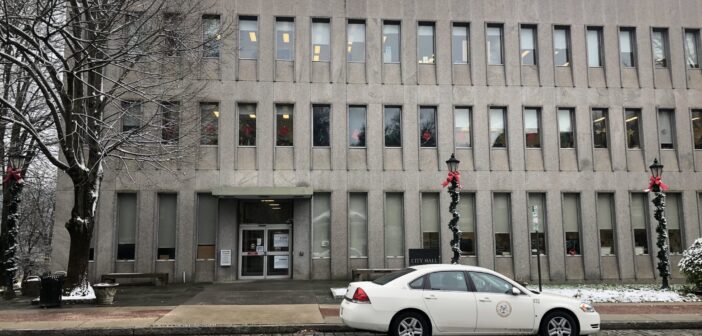The Bethlehem Police Department has been working closely with the Pennsylvania Youth and Disproportionate Minority Contact and Law Enforcement Corporation to develop an implicit bias training program for the department.
There is currently a pilot program in place that six of the city’s officers have participated in. The program is still in its early stages as the two entities continue to iron out the details.
Bethlehem Police Chief Michelle Kott has spoken about what is involved in the pilot program, its importance to the department and what they expect to get out of this partnership.
Kott hopes to have the program available to all officers by either the first or second quarter of 2021. The pilot program is broken down into three sessions. Each session provides officers with information regarding implicit bias through PowerPoints, videos and tests. Kott said she would like to add a pre- and post-survey to the program to see what strides have been made.
“As you go through the course, you start to realize that this is something that no one is immune from,” Kott said, who took over as the city’s police chief following former Police Chief Mark DiLuzio’s resignation earlier this year.
Implicit bias refers to the subconscious attitudes and predetermined concepts an individual has regarding another social group. These biases are influenced by personal experiences and the context in which people live.
Virtually no one is free from implicit bias.
“All cognition is influenced by past experience, goals, culture. Even perceptual experience can be different in people raised in different cultures,” said Gordon Moskowitz, professor of psychology at Lehigh University.
Moskowitz has been working on research regarding implicit bias for over 30 years. His work began before there was even a term known as implicit bias.
His exploration of this concept began with the question, “How do we make sense of the world around us, with the idea that people aren’t always rational?” Moskowitz notes the literature today is still vague on what precisely is implicit bias.
“To me, implicit bias refers to a constellation of hundreds of different ways in which people show influence in the way they think about other people that goes unrecognized,” Moskowitz said.
In his research, he has found that people can be completely unaware of the judgments they form in their heads. Even when asked, people actively deny the formation of inferences.
However, having preconceived notions is not the issue. It is how they are acted upon.
Kott and Capt. Rodney Bronson, both of whom participated in the pilot program, took the Harvard Implicit Bias Test as a part of one of the seminars.
Through this test, both Kott and Bronson realized they had their own implicit biases.
“Your upbringing, your cultural conditioning, carries you through your entire life. It fills those biases that you might have and don’t even know because they’re in your blind spot,” Bronson said.
The training has had its challenges and barriers as they attempt to piece together what works best.
Because of COVID-19, the training program has been virtually constructed. However, both Kott and Bronson have expressed the desire to have this be an in-person program.
It is difficult to complete a training as sensitive as this online, Bronson said. Being face to face encourages participation and engagement, which can be lost online.
After each session, the agency they are working with asks for feedback on what they liked and what can be improved.
Kott encountered this agency when she attended a Department of Justice webinar on social justice and bridging the gap between law enforcement and communities.
After the webinar, she reached out to the contact provided to ask if they would be able to deliver this online so the officers could receive training sooner rather than later.
The organization has previously worked in Lehigh County with law enforcement and youth to conduct a role reversal scenario. The scenario helped officers understand what children have experienced when interacting with law enforcement and explain to youth the reasoning behind law enforcement interactions.
“We found it to be very well-received by our officers and that’s why we felt it was important to reach out to them and ask about implicit bias training,” Kott said.
The implementation of this program is geared to help officers recognize their implicit biases in hopes to correct and improve community interactions.
The citizens will let you know if they think you’ve done something unfair, Bronson said, while noting that the city’s police department is trying to make it the best it can be.
The department got the ball rolling on this program this summer after the murder of George Floyd.
“It would be incredibly naive and irresponsible of us to say that there is no such thing as a racist cop,” Kott said.
In the past few months, there has been a lot of conversation about what it means to be anti-racist. To be anti-racist is to take the extra step and be actively against racism while promoting racial tolerance.
“It’s one thing to say that I’m not racist, I’m not prejudiced. But it is a completely different thing to be anti-racist,” Kott said. “That is the driving force behind this training; trying to make people aware of what is unconsciously going on in our heads so that we are able to have better interactions with the community that we serve.”
Implicit bias training will not fix systemic racism, but is it a start?
“As police, we want to be objective,” Bronson said. “We want to apply the law objectively. We want to eliminate as much emotion and implicit bias, especially explicit bias, as best we can as we do our jobs.”
These biases can show themselves in many police-community interactions, from arrests to traffic stops to suspicion to stop and frisk. But recognizing implicit bias has surfaced as an important part of Bethlehem’s police-community interactions.
“Just as with all other training, it is something that has to be done periodically. It can’t just be a once and done course,” Kott said. “This is a practice that, as chief, I want to be a norm.”






Comment policy
Comments posted to The Brown and White website are reviewed by a moderator before being approved. Incendiary speech or harassing language, including comments targeted at individuals, may be deemed unacceptable and not published. Spam and other soliciting will also be declined.
The Brown and White also reserves the right to not publish entirely anonymous comments.